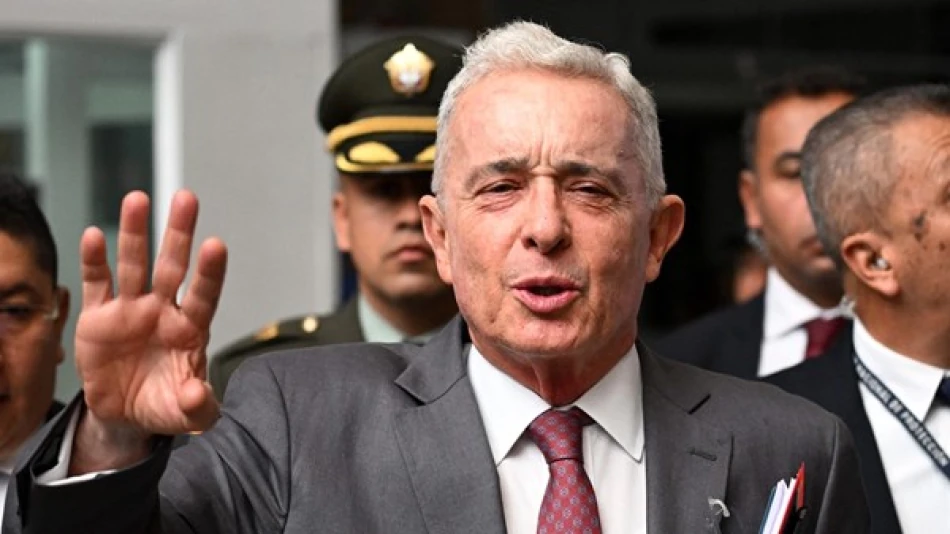
Former Colombian President Placed Under House Arrest in Corruption Probe
Colombia's Ex-President Uribe Sentenced to House Arrest in Historic Corruption Case
Former Colombian President Álvaro Uribe has been sentenced to 12 years of house arrest on charges of procedural fraud and bribing a public official, making him the first former head of state in the country's history to face criminal conviction. The landmark ruling, handed down Friday, stems from a 13-year witness tampering case that has shadowed one of Latin America's most polarizing political figures.
The Verdict That Shook Colombian Politics
Judge Sandra Liliana Heredia convicted Uribe on both charges Monday, following years of legal proceedings that have captivated the nation. The sentence includes a $578,000 fine and bars the 72-year-old from holding public office for over eight years. Uribe, who has consistently maintained his innocence, will appeal the decision through his legal team.
The timing carries particular weight: Colombia's 2026 presidential elections are less than a year away, and several of Uribe's political allies and protégés are positioning themselves for top positions. This conviction effectively removes the kingmaker from direct political participation during a crucial period for his conservative movement.
From War President to Criminal Defendant
Uribe's fall from grace represents a seismic shift in Colombian politics. During his presidency from 2002 to 2010, he was credited with weakening FARC rebels and reducing violence through his "democratic security" policy, earning him approval ratings that made him one of the region's most popular leaders. His hardline approach against leftist guerrillas and close alliance with the United States positioned him as Washington's key partner in South America's drug war.
However, his presidency was also marked by controversy, including allegations of human rights abuses and connections to paramilitary groups. The witness tampering case that led to his conviction involves accusations that he attempted to discredit witnesses who linked him to right-wing death squads.
Regional Context: Accountability Trends in Latin America
Uribe's conviction fits into a broader pattern of former Latin American leaders facing justice for corruption and abuse of power. Peru has seen multiple ex-presidents imprisoned or prosecuted, while Brazil's Operation Car Wash swept up political elites across the region. However, Colombia's case stands out for targeting a figure who remained politically active and influential long after leaving office.
Unlike other regional cases focused primarily on financial corruption, Uribe's charges center on alleged manipulation of the justice system itself—a particularly sensitive issue in a country still grappling with the legacy of decades of armed conflict and weak institutions.
Political Ramifications for Colombia's Right
The sentence creates a leadership vacuum within Colombia's conservative movement at a critical moment. Uribe's Centro Democrático party and affiliated politicians have relied heavily on his political brand and network. With him sidelined, figures like former President Iván Duque and other Uribe disciples must navigate the 2026 election cycle without their mentor's direct involvement.
This shift could benefit President Gustavo Petro's leftist coalition, which has struggled with low approval ratings amid economic challenges. Uribe's absence from the political stage removes a powerful opposition voice and fundraising magnet for conservative causes.
Justice System Under Scrutiny
The conviction also tests Colombia's judicial independence. Uribe and his supporters have long argued that he faces political persecution from leftist prosecutors and judges. His house arrest—rather than prison time—may reflect the courts' attempt to balance accountability with recognition of his age and former status.
The case will likely fuel ongoing debates about transitional justice in Colombia, where the 2016 peace agreement with FARC created special courts for conflict-related crimes while traditional courts handle common criminal cases. Uribe's conviction through regular judicial channels sends a signal that no political figure is above the law, regardless of their role in the country's complex history.
Most Viewed News

 Layla Al Mansoori
Layla Al Mansoori






